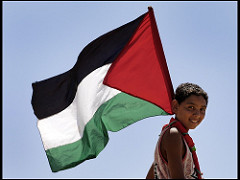Collectivism and Collective Identity
Individualism and collectivism are cultural dimensions used to classify cultures based on group orientation. Individualistic cultures focus on the individual and the individual’s interests, such as independence and personal agency. Collectivistic cultures, on the other hand, gives priority to the group and its interests, emphasizing communal and societal concerns. All societies share a collective identity, a definition of the group based on members’ common interests and experiences. Individualistic cultures tend to share a weak collective identity, while collectivistic societies tend to share a strong collective identity. In regards to the Israeli-Palestinian conflict, much psychological research studies the impact of the conflict on collectivism and collective identity.
Effects on Intergroup Interactions
On the Geert Hofstede scale, a scale used to measure different cultural dimensions, Israel ranks 54 out of 100 for collectivism (Hofstede, 2001). This means that the nation represents a blend of collectivistic and individualistic values. However, these views may be shifting upward as youth are increasingly exposed to prolonged conflict.
In 2001, Sagy et al. examined the responses of Palestinian and Jewish Israeli high school students concerning personal values, interests in history, and attitudes toward conflict. In doing so, the researchers found that both groups of students tended to be more collectivistic than individualistic oriented (Sagy et al., 2001). That being said, they also found that Palestinian students scored higher on ingroup collectivistic orientation that the Jewish Israeli students. These scores reflect greater polarization of Jewish Israeli and Palestinian societies. This may be a result of youth being raised in a climate of violence against a conflict outgroup, thus increasing ingroup bias and collective identity. Palestinians’ higher score in collectivistic orientation may reflect psychological consequences of the Israeli seizure of land and current occupation of the West Bank and Gaza. Resulting oppression of Palestinians by Israeli forces likely pushes Palestinians to more strongly identify with their ingroup and ‘other’ the Israeli citizens.
